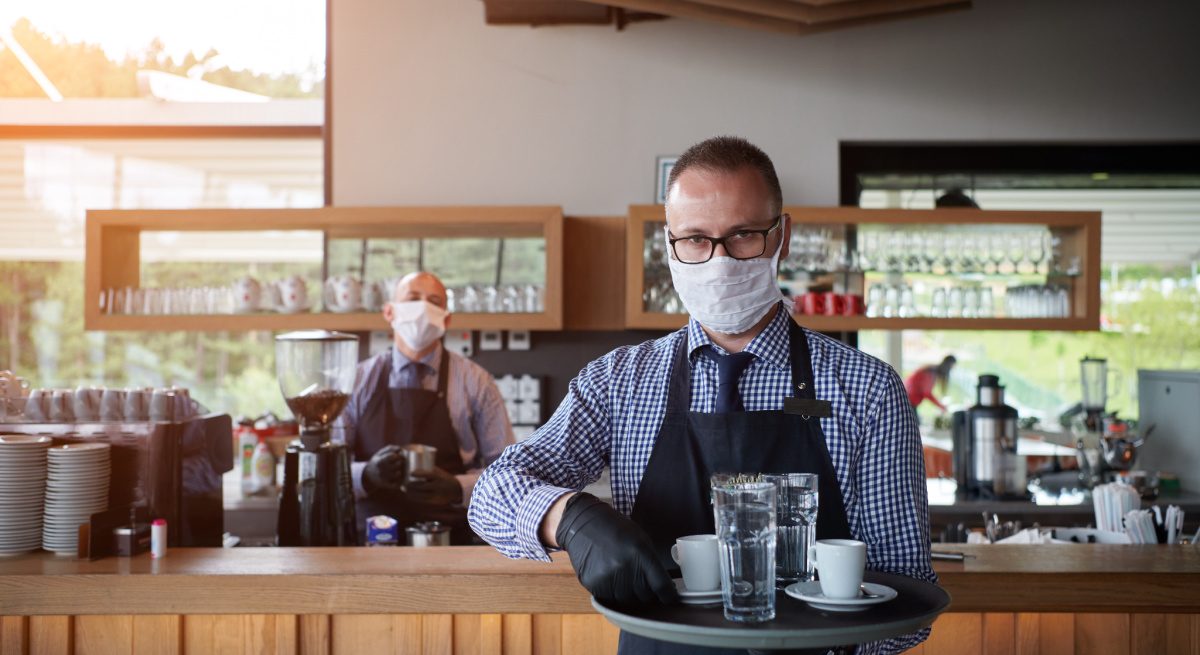Lessons from the Pandemic and the Road Forward for Hospitality
4 Min Read By Marbet Lewis, Steven W. Zelkowitz
At this time last year, restaurants and bars across the country went from being houses of entertainment and joy to being forced to close as part of wide-spread mandated shutdowns to stop the spread of an uncontrollable and unknown pandemic. Shock, uncertainty, and confusion took hold of our lives and businesses.
At the time, this industry was trying to discern what the right ‘next’ move was to mitigate the long-term effects of a shuttered hospitality industry. More than a year later, with recovery just beginning, we can look back at what this past year has meant for the industry and what the future holds for restaurants, bars, nightclubs, and movie theaters.
The Biggest Challenges
The biggest challenge the hospitality industry faced was the need to pivot their business model without having any preparation or guidance on how to do so. In an instance, businesses had to turn from on-premise to off-premise sales including implementing and focusing on deliveries and pick-up, refashioning menu items and navigating through new regulatory hurdles tied to social distancing and the use of masks.
One area that became of immediate concern during those trying months for hospitality businesses was their ongoing lease and financing obligations but most importantly their ability to pay their monthly rent obligations. In general, the pandemic has changed leasing structures to address the inability of restaurants, bars, and nightclubs to conduct business in the event of government regulations that prohibit or limit the ability of the tenant to conduct business. These types of provisions are generally known as Force Majeure provisions and excuse a party’s performance in the event of circumstances such as acts of God including hurricanes and other natural disasters but have been more limited with man-made events such as terrorism and labor strikes. In the case of a pandemic, the line between natural disaster and “man-made” catastrophic events is more blurred which has made it difficult for tenants to renegotiate terms and even more difficult for landlords to pursue eviction or other legal action to compel payment. This uncertainty of legal cause has left many tenant and landlords in limbo, but wheels are turning within the legislative process to address liability concerns stemming from the Covid-19 pandemic, and we are likely to see changes in negotiation of lease and financing agreements to address pandemic related business closure.
Meanwhile, landlords remain cautious and reluctant to allowing tenants to occupy a premises indefinitely without paying or catching up on late or delayed payments. As a compromise, tenants are agreeing to pay at least the maintenance, taxes and insurance with rent being prorated based upon the level of occupancy permitted by the government restriction. The rent is typically not forgiven but deferred to a future date when the business is fully open and robust. Landlords are also considering renegotiation of future percentage rent payments post-reopening to help balance profit losses during closure periods. Overall, commercial lease negotiations will see an overhaul on business interruption provisions.
A Changing Regulatory Environment
The effects of the pandemic are also bringing changes to the regulations governing food, beverage and alcohol sales to help the industry recover. States like Florida and others are currently considering allowing mixed drinks to be sold on a to-go basis permanently. This would be welcome news as the pandemic has created permanent changes to consumer behavior, including the increased use of online ordering and take-out. These will continue to be in high demand long after the pandemic is over, and the regulations must keep up with consumer preference.
Overall, legislators at the federal and states levels should also reconsider adding more flexibility to current alcohol trade practice regulations. This area of law regulates how producers and distributors can engage and negotiate with retailers including allowances for sponsorship promotions, cooperative advertising exemptions and even product placement. More flexibility in this area could help industry members work together to revitalize hospitality and on-premise alcohol retailers like restaurants and bars.
The Road Forward
As we start to recover from this crisis, we can look ahead to how the industry may look differently moving forward. Current legislative agendas foreshadow more emphasis on regulatory flexibility in terms of online food and alcohol sales and direct-to-consumer shipping in the coming years. Advances in e-commerce were already pushing for regulatory innovation but the pandemic made modernization and integration of online ordering technology a necessity. It will be difficult to go back to a system of rigid regulation in this area because the added flexibility worked without any critical negative impacts.
The main lesson from the past year is that hospitality businesses need to be flexible in operational models while always keeping an eye on technology and changes in consumer convenience trends. Equally important is an emphasis on development of strong business plans and being prepared for not only the unexpected but also for the worst-case scenario. Emergency preparedness and emergency planning is more important than ever, especially in areas that continue to see heavy destruction from natural disasters. However, there should now be a greater emphasis on better financial planning and enhanced insurance benefits to cover unexpected business interruption.
While heavily impacted and wounded from the pandemic’s far-reaching effects, the hospitality industry continues to show its resilience and strength after almost a year of ongoing closures and significant capacity reductions. Thanks to consumer loyalty, our thirst for social engagement and the industry’s innovative nature, hospitality will survive and endure. The industry can now look forward to a new strong and prosperous future that provides better leasing terms, integrates well with modern consumer trends and online e-commerce technology.



